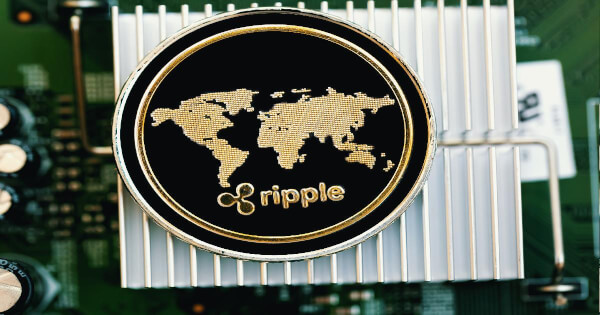Ripple, a US-based leading provider of crypto solutions for businesses, announced on Thursday the launch of its crypto on-demand liquidity (ODL) in Brazil.
According to the statement, Travelex Bank will become the first Brazilian financial institution to use the ODL to boost its trading activities.
Ripple’s ODL solution uses XRP, a digital asset ideal for payments, to allow clients to send money across borders instantly with a very low-cost settlement between countries and without the need to hold pre-funded capital in the destination market.
Travelex Bank was seeking to provide a better customer experience to its partners, who have limited capital to cover the costs of pre-funding, which was causing hindrances to their growth.
Travelex will use ODL to deliver instant settlement and access to liquidity 24/7/365, allowing its partners to grow better and scale their business.
Travelex will initially use ODL to support payments between Mexico and Brazil, with plans to support more international destinations as well as more use cases such as internal treasury and bulk small and medium-sized enterprises (SME) payments in the future.
Brad Garlinghouse, CEO of Ripple, talked about the development: “Brazil is a key market for Ripple given its importance as an anchor to business in Latin America. We are excited to collaborate with an innovative partner like Travelex Bank to help move money more efficiently for the benefit of its customers across Brazil.”
Continues to Conquer Banking Sector
Travelex joins other Ripple customers and partners in the region, including Banco Rendimento, Remessa Online, Frente Corretora, Banco Topazio, and B&T Câmbio already benefiting from RippleNet cloud technology.
In 2019, Ripple opened its local office in Sao Paulo, Brazil, to set foot in Latin America and expand its footprint in the region.
In June 2020, Banco Rendimento acquired RippleNet Cloud services to increase payment volumes and to provide clients with greater visibility, transparency, and standardization in their balances.
Rendimento Bank joined many other financial institutions already running on the RippleNet Cloud.
Financial institutions and banks use the RippleNet cloud to maximize their business benefits with increased speed of innovation and time-to-market while reducing the total cost of ownership.
RippleNet cloud enables the ability to send and receive payments between financial institutions on RippleNet, the global network of Ripple’s blockchain payments.
Ripple and XRP enjoy the trust of several banks as a model for CBDCs because it is highly centralized and is based on a permissioned network where only certain network nodes can validate transactions, as opposed to permissionless and decentralized cryptocurrencies such as Bitcoin and Ether.
Garlinghouse’s firm previously looked to partner with Brazil for the CBDC (Central Bank Digital Currency) issuance.
In August 2020, the Banco Central do Brasil (BCB) – Brazil’s central bank – launched a working group for the development of its digital currency two months after holding a meeting with Ripple Labs.
In November last year, Palau – the pacific island country – partnered with Ripple Labs Inc. to explore the development of its national digital currency.
In March last year, France’s central bank, Banque de France, openly discussed Ripple/XRP as a possible platform for Europe’s central digital currency.
Image source: Shutterstock
Credit: Source link






















 Bitcoin
Bitcoin  Ethereum
Ethereum  XRP
XRP  Tether
Tether  Solana
Solana  USDC
USDC  Dogecoin
Dogecoin  Cardano
Cardano  Lido Staked Ether
Lido Staked Ether  TRON
TRON  Wrapped Bitcoin
Wrapped Bitcoin  Wrapped stETH
Wrapped stETH  Chainlink
Chainlink  Avalanche
Avalanche  Sui
Sui  Stellar
Stellar  Litecoin
Litecoin  Shiba Inu
Shiba Inu  Toncoin
Toncoin  Hedera
Hedera  LEO Token
LEO Token  USDS
USDS  Hyperliquid
Hyperliquid  Polkadot
Polkadot  WETH
WETH  MANTRA
MANTRA  Bitcoin Cash
Bitcoin Cash  Ethena USDe
Ethena USDe  Bitget Token
Bitget Token  Wrapped eETH
Wrapped eETH  Uniswap
Uniswap  Monero
Monero  NEAR Protocol
NEAR Protocol  Pepe
Pepe  WhiteBIT Coin
WhiteBIT Coin  Aave
Aave  Ondo
Ondo  Bittensor
Bittensor  Aptos
Aptos  Internet Computer
Internet Computer  Dai
Dai  Official Trump
Official Trump  Ethereum Classic
Ethereum Classic  Tokenize Xchange
Tokenize Xchange  Mantle
Mantle  OKB
OKB  Gate
Gate  sUSDS
sUSDS  Coinbase Wrapped BTC
Coinbase Wrapped BTC 
